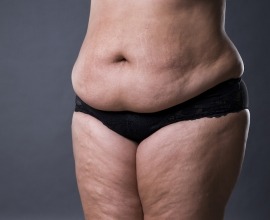Gastric balloons for weight los
A gastric balloon - or an intragastric balloon to give it its full title - is a common weight loss aid which involves placing a saline-filled silicone balloon in your stomach to physically limit how much you can eat, as well as making you feel fuller faster. [1]
In the UK, having a gastric balloon fitted costs an average of £4,500 [2], and in most cases does not include any aftercare fees. However, more affordable weight loss clinics can be found by making a short journey to areas such as central Europe.

Why should I use a gastric balloon?
If other weight loss treatments - including exercise and eating healthily - haven’t worked for you, then a non-surgical gastric balloon procedure may be an option worth considering.
A gastric balloon may also be recommended by your doctor if you:
-
Have failed to lose weight using oral weight loss medication.
-
Are at risk of significant health risks caused by obesity such as fatty liver disease, diabetes, high blood pressure, polycystic ovary syndrome and arthritis. [2]
-
Do not wish to have more invasive forms of weight loss surgery.
-
How does the gastric balloon process work?
Gastric balloon treatment begins with an endoscopic inspection of your upper digestive using a flexible telescopic camera that’s inserted in your mouth and down into your stomach. This is used to identify any potential abnormalities in the gullet, such as hernias and ulcers. [3]
If everything looks okay, your endoscopist will then remove the camera and place a small deflated balloon at the back of your tongue for you to swallow. Once it’s in your stomach, the balloon is inflated and filled with a sterile saline solution. The full process lasts around 20 minutes and the balloon will remain in your stomach for up to six months.
A gastric balloon procedure can be carried out under local or general anaesthetic, depending on your preferences and the recommendations of your doctor or surgeon. As sedation is a possibility, if possible, you should bring someone along who will be able to drive or escort you from the clinic after your treatment.
How much weight will I lose?
The amount of weight you can expect to lose from a gastric balloon varies depending on your size and body type, but as a general rule patients can lose up to one third of their excess weight.
While a gastric balloon will help make you feel full more quickly, it’s not designed as a quick fix method for reducing weight and should be supported with a healthy diet and a reduction in foods high in calories, fat, sugar and carbohydrates.
Lifestyle changes aimed at reducing weight should also be considered especially if you find you’re not undertaking enough physical activity and exercise.
Gastric balloon side effects
Some common short-term side effects of having a gastric balloon fitted include nausea, vomiting and mild stomach pain.
Rare and more serious complications associated with a gastric balloon procedure may include:
-
Acid reflux and indigestion
-
Back pain
-
Severe abdominal pain
-
Feeling imbalanced
-
Balloon rupture
Having a gastric balloon fitted is a relatively safe and painless procedure, however if you have any concerns about the possible side effects of this type of weight loss treatment, speak to your doctor or surgeon who will be able to offer you tailored advice and answer any questions or concerns you may have.
SOURCES:
[1] https://www.mayoclinic.org/tests-procedures/intragastric-balloon/about/pac-20394435
[2] https://www.privatehealth.co.uk/conditions-and-treatments/gastric-balloon/costs/
[4] https://www.hey.nhs.uk/patient-leaflet/gastric-balloon-weight-reduction/














